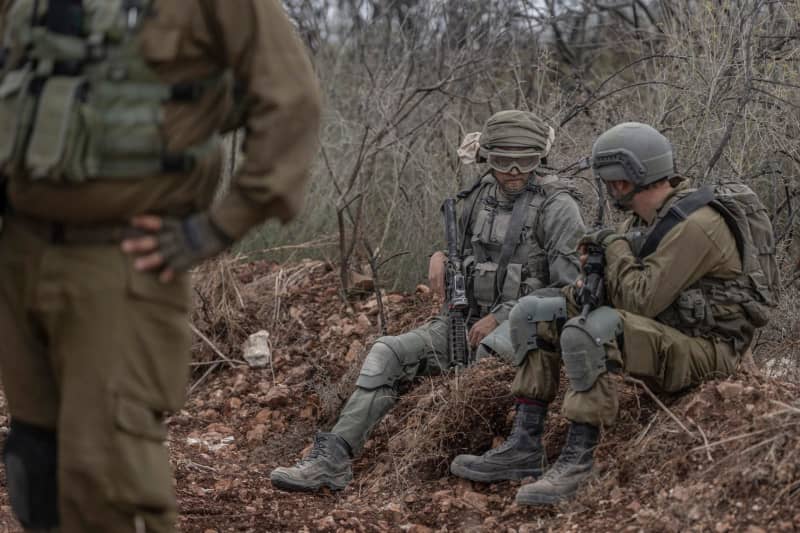On Wednesday, the Israel Defense Forces (IDF) reported that five Israeli soldiers were killed in combat operations in southern Lebanon. This tragic event involved four reservists, aged between 22 and 42, and the young leader of a canine unit, who was only 23. The soldiers encountered a surprise attack from Hezbollah militiamen during an engagement as they entered a village. Reports indicate that the Hezbollah fighters emerged from a concealed shaft and threw hand grenades at the Israeli soldiers, leading to the deadly clash. In addition to the fatalities, six other soldiers sustained serious injuries and were subsequently transported to hospitals in Israel for medical treatment.
The recent deaths of these soldiers have added to the increasing toll on Israeli military personnel since the ground offensive in southern Lebanon commenced three weeks ago, bringing the total number of Israeli soldiers killed to 22 during this period. The ongoing conflict in the region has raised significant concerns about the safety and viability of military operations, emphasizing the unpredictable nature of frontline engagements. The escalation of violence and unexpected encounters with enemy forces have posed grave risks to the lives of Israeli soldiers, highlighting the fierce resistance encountered on the battlefield.
Moreover, the casualties in southern Lebanon feed into a broader context of military losses for Israel. According to IDF statistics, since the onset of the October 7 attack from the Gaza Strip the previous year, a staggering total of 757 Israeli soldiers have lost their lives in combat operations. This statistic reflects the ongoing and intensifying nature of the conflict, showcasing the heavy toll that both sides have experienced in terms of military personnel and resources. The sustained fighting has raised questions regarding the long-term strategy of the IDF and the challenges of achieving security in a volatile region.
In light of these events, the psychological impact on the Israeli military and society cannot be understated. The loss of soldiers, particularly in rapid succession, can create a ripple effect of grief and mourning that resonates throughout communities and families. Furthermore, the deaths of reservists, who are often civilians temporarily called to service, can intensify feelings of vulnerability and unease among the population. As families grieve their loved ones and the military tries to manage public sentiment, the incidences of trauma and loss highlight the human cost of prolonged conflict.
The operational challenges posed by Hezbollah in southern Lebanon further complicate the situation for the IDF. The group’s guerrilla warfare tactics, including ambushes and surprise assaults, require the Israeli military to adapt continuously and seek innovative strategies to minimize risks and casualties. However, the complexities of urban warfare and the dense population in southern Lebanon make such operations highly challenging and dangerous. The IDF’s ability to navigate these difficulties will be critical in determining the dynamics of the ongoing conflict and the outcomes of military assessments in the region.
As the situation evolves, the international community watches closely, taking stock of both the humanitarian implications and the broader geopolitical ramifications. The conflict between Israel and Hezbollah has far-reaching consequences that extend beyond just military engagements, affecting regional stability and security alliances. Continuous violence and military losses underline the urgent need for dialogue and resolution to prevent further escalations and ensure the safety of civilians and soldiers alike. In conclusion, the recent casualties in southern Lebanon highlight the ongoing challenges faced by the IDF and the heavy toll the conflict takes on all involved.

